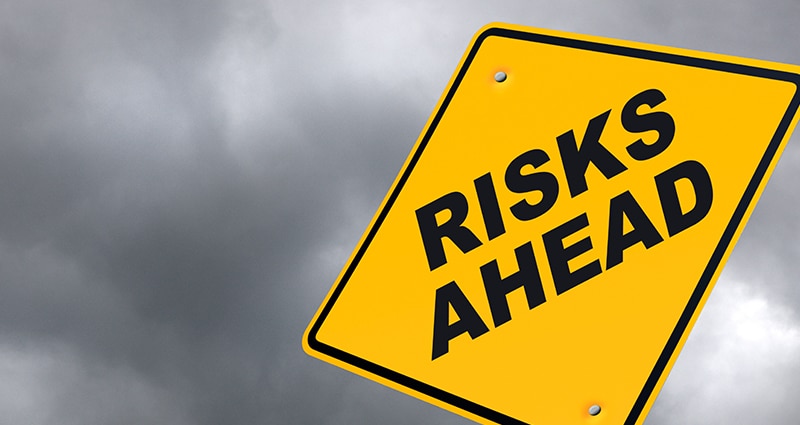A Culture Of Readiness And Responsibility

“Action springs not from thought, but from a readiness for responsibility.”
-Dietrich Bonhoeffer,German theologian
In the preceding SM4 newsletter we stepped away from the written plan and examined the elements that make any response successful – people – and their ability to manage change. In this article we will study an internal trait that seems to be inherently reserved for the most successful of organizations: A corporate culture of readiness and responsibility.
History is our most persuasive and credible teacher, and she is still holding class.
2010 will be remembered as a year when emergency response preparedness and planning was thrust dramatically into public view as everyone seems to have an opinion about how appropriately or inappropriately a major oil company responded to a catastrophe. Discussions and theoretical debates about how our operational technology has vastly exceeded our ability to respond to failures are occurring across the country. At no other time in recent memory have the issues of emergency preparedness and corporate responsibility been so prominent.
An argument can be made that in any inherently risky operation, the best one can do is minimize (and eliminate where possible) the risks associated with that operation. You need only plan a response for the risks you can reasonably foresee and cannot control. An equal argument could assert that across the scope of operations and within the locus of control, we must have a solid grasp of all of the possibilities. To assert that “you never saw it coming” is an increasingly indefensible argument.
This argument will not be settled in the corporate boardroom or the halls of our government; it will be settled in the court of public opinion. The public seems to expect any company to display a culture of complete response readiness and corporate responsibility. Regardless of your expectation of risk you must be prepared to respond to almost any negative event. You have a responsibility to respond appropriately and the buck stops with you. You must examine your culture and strengthen your foundations if necessary.
What can the response to the Gulf oil crisis teach those of us in the business of aviation?
An uncomfortable reality lies under the surface of the Gulf. To understand and confront the required preparedness to respond to that which we cannot foresee, we must examine how our current culture might allow our poor response preparation to exist. Does this sound familiar?
“We are in the business of flying airplanes safely and we implement standards that exceed those found in most every other endeavor. We do everything well and we will respond to an emergency with professionalism.”
“We are not in the business of emergency response. We will hire someone to manage our response.”
“Accidents are so rare and so unique that what we did in the past won’t always work in the context of the next response. So why prepare? We will wing it.”
“It will always be someone else. We operate safely and we simply will not have accidents.”

If one or more of these statements make you wince, you are not alone; I hear these words all the time. But, if you did wince, let this be your wakeup call. You can begin to make necessary changes to your cultural approach to response right now. A positive culture of emergency response readiness and responsibility is largely defined and evidenced by the following:
The emergency response plan contains a letter from a principal officer demonstrating the commitment to emergency preparedness and it outlines a “top down” expectation for shared readiness and responsibility.
The company is not afraid to plan and practice for events that involve the sudden and tragic loss of both human and material assets. Response exercises cover the scope and breadth of the operation. Available exercise resources match the needs of the responders and the requirements of the test.
The company expects its vendors, contractors, and industry partners to have plans of their own – and in the best case scenario – that those plans match up with the company plan.
An effective culture of readiness and responsibility is not accomplished through signs on the wall, or a checklist –it is demonstrated daily. It begins with frank discussions about your readiness and includes a “gloves off” assessment of your current condition. Only then can you begin to build your plan to match your needs and start planting the seeds of response readiness and responsibility.
Reflection
It is fair to say that the cultural components of readiness and responsibility, when in place and effective, are not much different than those of safety. A top-down supporting philosophy and a clear understanding of company principles and expectations are required. An appropriate response culture can increase the confidence of your people, and protect your brand.
Notable quotes
- “Safety culture is about having the will to do something – not the money.”
The Deborah A. P. Hersman. Chairman, NTSB - “Learning disabilities are tragic in children, but they are fatal in organizations.”
Peter Senge, “The Fifth Discipline: The Art and Practicing of the Learning Organization” - “Without exception, the dominance and coherence of culture proved to be an essential quality of the excellent companies. In these [strong culture] companies, people way down the line know what they are supposed to do in most situations because the handful of guiding values is crystal clear.”
T.J. Peters and R.H. Waterman, “In Search of Excellence: Lessons from America’s Best- Run Companies.” - “… it is worth pointing out that if you are convinced that your organization has a good safety culture, you are almost certainly mistaken.”
James Reason, “Managing the Risks of Organizational Accidents.”
 Fireside Partners Inc.
Fireside Partners Inc.Fireside Partners, Inc., is a fully integrated emergency services provider designed to provide all services and resources required to respond effectively and compassionately in a crisis situation. Dedicated to building world-class emergency response programs (ERP), Fireside instills confidence, resiliency and readiness for high-net worth and high-visibility individuals and businesses. Fireside provides a broad array of services focused on prevention and on-site support to help customers protect their most important assets: their people and their good name.
http://www.firesideteam.com/
© 2024 Fireside Partners Inc.. All Rights Reserved.
Next ArticleRelated Posts

More Than a Box Tick: Achieving Operational Flexibility With an FRMS
Moms know best. This adage holds true in many domains of family life—allergies, grades, crushes. When thinking about aviation safety, though, perhaps the best illustration drawn from mom’s expertise is…

The Effects of a Learning Mindset on Safety Culture
As aviation departments strive to enhance their safety performance, a critical yet often overlooked element is the need to foster a learning-culture mindset. This mindset shift can unlock invaluable opportunities for continuous improvement, employee engagement and creating a resilient safety environment. From a behavioral management perspective, as your company’s learning culture goes, so goes the ongoing success of your SMS.

